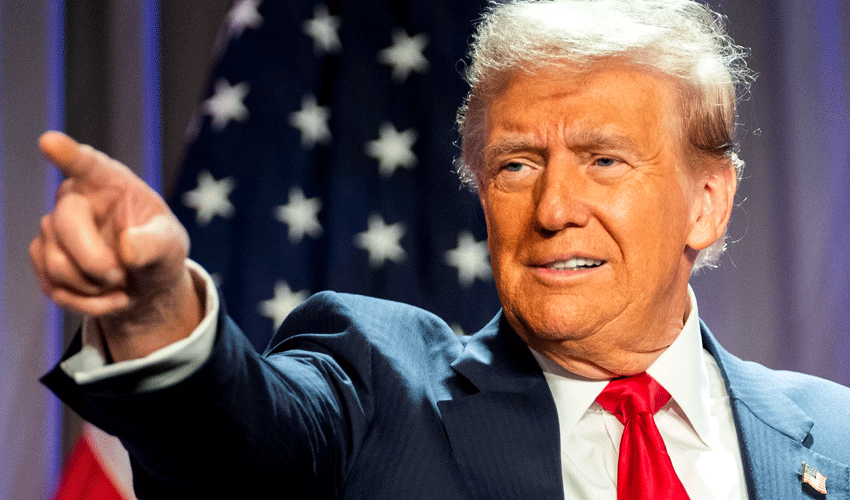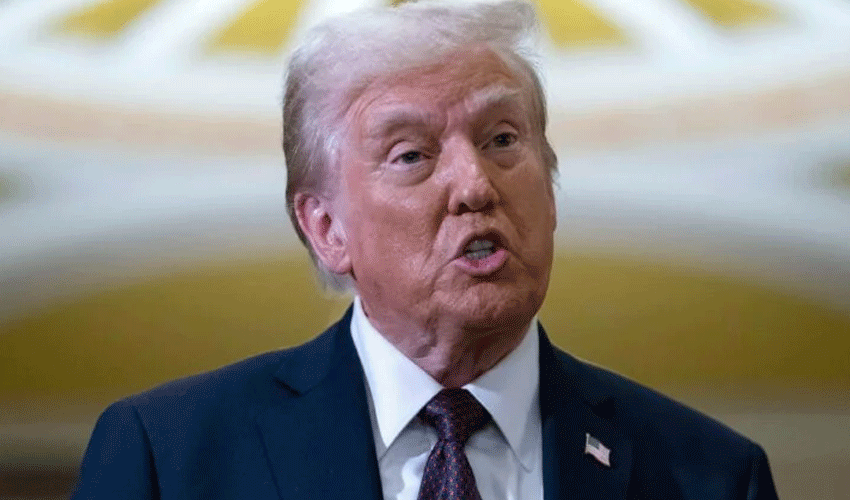U.S. President Donald Trump has temporarily suspended the imposition of steep tariffs on Mexico and Canada, granting a 30-day reprieve in exchange for commitments on border security and crime enforcement.
However, tariffs on Chinese imports are set to take effect as scheduled.
The decision, announced on Monday, comes after talks with Canadian Prime Minister Justin Trudeau and Mexican President Claudia Sheinbaum. Both leaders pledged to intensify efforts to curb illegal immigration and drug smuggling, a key demand from Trump’s administration.
Under the agreement, Canada will enhance its border security by deploying advanced technology and additional personnel, along with cooperative measures to combat organized crime, fentanyl trafficking, and money laundering. Mexico, on the other hand, has agreed to deploy 10,000 National Guard members along its northern border to curb illegal migration and drug smuggling.
The U.S. also committed to preventing the trafficking of high-powered weapons into Mexico, Sheinbaum confirmed.
"As President, it is my responsibility to ensure the safety of ALL Americans, and I am doing just that. I am very pleased with this initial outcome," Trump stated on social media.
The last-minute agreement averts, at least temporarily, a full-blown trade war, which economists had warned could have severe economic consequences for all parties involved. The 25% tariffs, originally set to take effect on Tuesday, have now been delayed for 30 days, allowing room for further negotiations on economic agreements.
China tariffs set to proceed
While Mexico and Canada secured temporary relief, China remains the primary target of Trump’s trade measures. The administration confirmed that a 10% tariff on Chinese goods will take effect at 12:01 a.m. ET on Tuesday (0501 GMT). Trump is expected to speak with Chinese President Xi Jinping later this week.
Warning of further action, Trump stated, "China hopefully is going to stop sending us fentanyl, and if they're not, the tariffs are going to go substantially higher."
Beijing has dismissed the U.S. claims, calling fentanyl an American problem and vowing to challenge the tariffs at the World Trade Organization. Chinese officials have also alluded to possible countermeasures while maintaining an open dialogue.
News of the temporary reprieve for Mexico and Canada led to a surge in the Canadian dollar, which had recently fallen to its lowest level in more than two decades. U.S. stock index futures also saw an uptick following a day of losses on Wall Street.
Trade organizations welcomed the pause, with Chris Davison, head of a Canadian canola producers’ trade group, stating, "That’s very encouraging news. We have a highly integrated industry that benefits both countries."
EU could be next target
Trump also indicated that the European Union could be his next focus, though he provided no specific timeline. The 27-nation bloc has warned that it would retaliate if the U.S. imposes tariffs but expressed willingness to negotiate.
Meanwhile, Britain, which exited the EU in 2020, may be spared from any potential trade restrictions, Trump hinted.
Although the U.S. president has acknowledged that tariffs could lead to higher costs for American consumers, he defended them as necessary to address immigration concerns, narcotics trafficking, and domestic industrial growth.
Analysts, however, have cautioned that the tariffs could push Canada and Mexico into a recession and risk triggering stagflation—a combination of high inflation, stagnant growth, and increased unemployment—in the United States.



























